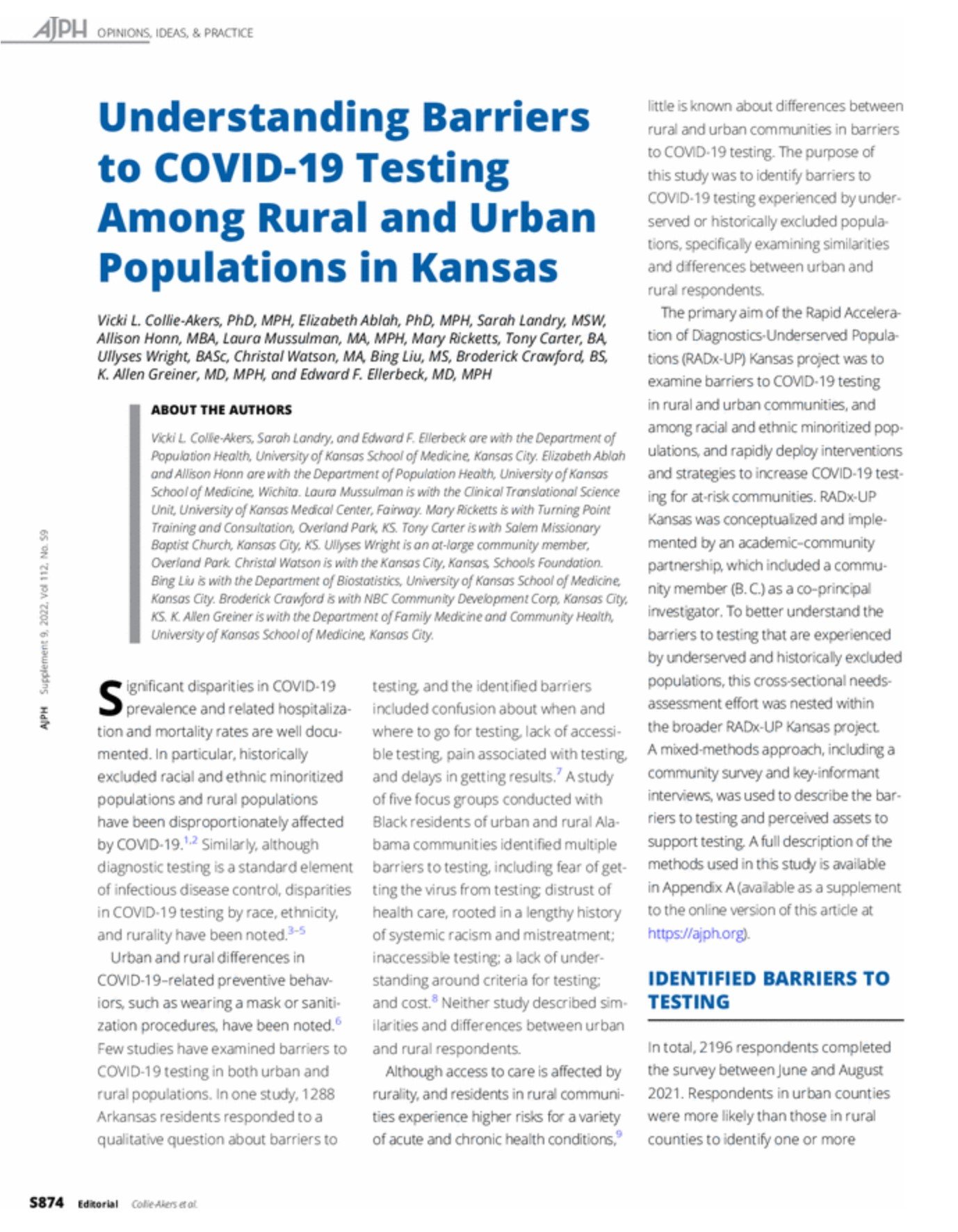Evidence-Based
The Health Equity Task Force believes that to address health disparities, we must examine their underlying causes. This requires looking at the best available data we have and engaging with researchers to better understand what is happening. By including the evidence of health disparities, we can better develop our responses as a community.
Community-Led
The Health Equity Task Force also recognizes that having evidence of health disparities alone is not enough. We must still meet our community where they are and make information accessible and relevant. Research that is not led by or with the community is not for the community.
The articles highlighted below reflect community-based research that engages with health disparities in Wyandotte County, Kansas:
Understanding Barriers to COVID-19 Testing Among Rural and Urban Populations in Kansas
“The aim of this study was to identify barriers to COVID-19 testing experienced by underserved or historically excluded populations, specifically examining similarities and differences between urban and rural Kansas residents. This study’s results suggest that many barriers to COVID-19 testing for underserved or historically excluded populations are similar in urban and rural counties.”
HETF members Tony Carter, Broderick Crawford, and Dr. Allen Greiner were co-authors for this article.
Co-Authors: Vicki L. Collie-Akers, PhD, MPH; Elizabeth Ablah, PhD, MPH; Sarah Landry, MSW,Allison Honn, MBA; Laura Mussulman, MA, MPH; Mary Ricketts, Tony Carter, BA; Ullyses Wright, BASc; Christal Watson, MA; Bing Liu, MS; Broderick Crawford, BS,K.; Allen Greiner, MD, MPH; and Edward F. Ellerbeck, MD, MPH
American Journal of Public Health
Volume 112,
Issue S9
Nov 2022
Pages S841-S928



